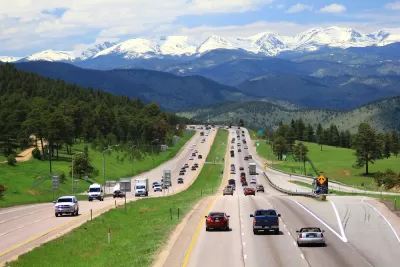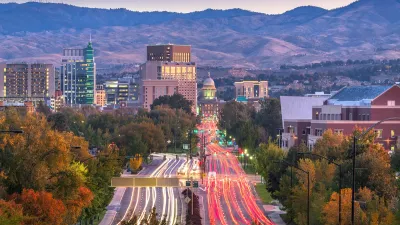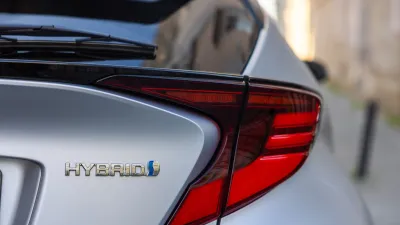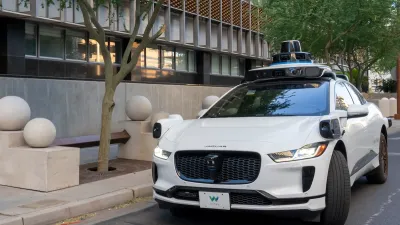New research assesses the potential implications of reduced car ownership on the design of roads and communities.

A new report from the Institute of Transportation Engineers analyzes how a decline in vehicle ownership could change the way planners design cities, reports Lori Aratani in The Washington Post.
The findings highlight the differing needs of people who choose to not own a car and people who are carless by necessity due to the high cost of car ownership or other barriers. “The report recognized that not having a car might not be a choice — some can’t afford to own and maintain a vehicle — which the study said underscores a need to adopt strategies to address such inequities.”
Civil engineer Douglas S. Halpert spoke with The Washington Post about the report, saying that “You’re already seeing changes in roadway design to accommodate additional modes other than personal vehicles, and there are more analysis metrics for operations other than delay and safety, which are becoming more generally accepted.”
According to the article, “The report’s authors want policymakers to consider whether transportation infrastructure funding is being invested in a balanced way that meets the needs of all travelers.” Halpert added that providing effective and attractive alternative transportation options is key to incentivizing people to reduce their car use.
FULL STORY: How a future with fewer cars may change how communities are designed

Study: Maui’s Plan to Convert Vacation Rentals to Long-Term Housing Could Cause Nearly $1 Billion Economic Loss
The plan would reduce visitor accommodation by 25,% resulting in 1,900 jobs lost.

North Texas Transit Leaders Tout Benefits of TOD for Growing Region
At a summit focused on transit-oriented development, policymakers discussed how North Texas’ expanded light rail system can serve as a tool for economic growth.

Using Old Oil and Gas Wells for Green Energy Storage
Penn State researchers have found that repurposing abandoned oil and gas wells for geothermal-assisted compressed-air energy storage can boost efficiency, reduce environmental risks, and support clean energy and job transitions.

Private Donations Propel Early Restoration of Palisades Playground
Los Angeles has secured over $1.3 million in private funding to restore the Pacific Palisades playground months ahead of schedule, creating a modern, accessible space that supports community healing after recent wildfires.

From Blight to Benefit: Early Results From California’s Equitable Cleanup Program
The Equitable Community Revitalization Grant (ECRG) program is reshaping brownfield redevelopment by prioritizing projects in low-income and environmental justice communities, emphasizing equity, transparency, and community benefits.

Planting Relief: Tackling Las Vegas Heat One Tree at a Time
Nevada Plants, a Las Vegas-based nonprofit, is combating the city’s extreme urban heat by giving away trees to residents in underserved neighborhoods, promoting shade, sustainability, and community health.
Urban Design for Planners 1: Software Tools
This six-course series explores essential urban design concepts using open source software and equips planners with the tools they need to participate fully in the urban design process.
Planning for Universal Design
Learn the tools for implementing Universal Design in planning regulations.
Ascent Environmental
Borough of Carlisle
Institute for Housing and Urban Development Studies (IHS)
City of Grandview
Harvard GSD Executive Education
Toledo-Lucas County Plan Commissions
Salt Lake City
NYU Wagner Graduate School of Public Service





























